- Category
- War in Ukraine
The Hidden Cost of Russia’s Convicts-Turned-Soldiers Returning Home
-06f01148920a3d2ec53ed4e042dac7bb.png)
Russian prisoners who were given the chance to fight in Ukraine for their freedom are returning to their communities, more violent, and causing panic across the country.
A tragic shooting took place on July 12th, 2024, in Ugolsky, a village in Russia’s Volgograd Region—home to only a handful of people. The village drew national attention when a convict, who recently had his sentence commuted after signing a contract with the Russian Army to fight in Ukraine, opened fire at a crowd of children with an assault rifle. One child was injured and is now hospitalized.
On this day, a group of children from the village decided to pull a prank on a neighbor, a former convict and veteran, and his brother, an active-duty soldier. The two men were throwing a party. The children managed to shut off the music inside the home of the brothers. According to the report, they then heard the sound of a gun reloading and promptly fled. Shots were fired, hitting a 12-year-old boy in the leg. The veteran, alongside his brother, was detained.
The shooter confessed the police handed over the case to the military prosecutor's office, and a village was terrorized by someone who should have remained in jail. But this wasn’t the only instance of such violence from a convict-turned-soldier in Russia.
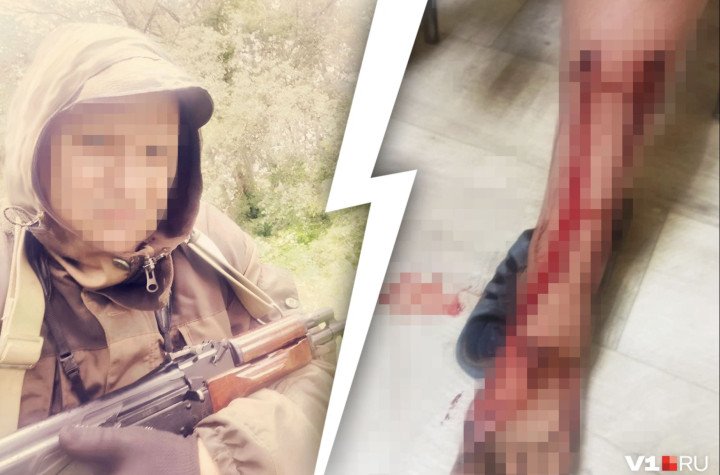
Why prisoners in the first place?
Today, similar cases involving former convicts-turned-soldiers who have returned home are becoming commonplace in Russia. Reports of recidivist crimes and extreme violence appear in Russian independent media almost every week, along with social media posts warning community groups of the return of dangerous individuals.
As of last year, 16,000 Russian prisoners had been released into society after fighting in Ukraine, according to a report by the NGO “Behind Bars”. According to that same report, in 2023, Up to 190 criminal cases were opened against former convicts, including 20 cases of murder or attempted murder. Now in Russia, men who are predisposed to violence, who would later be exposed to hyperviolence on the frontlines, are returning home to civilian life.
Many of these cases are covered in the media because of their brutality, although the Russian authorities prefer not to talk about them. They make every effort to create an image of heroes of the war against Ukraine. But this is especially difficult because of the brutality of the crimes committed.
In the summer of 2022, Vladimir Putin considered mobilization. Still, he chose a different approach to address the personnel shortage: the Russian army began recruiting convicts serving time in prisons for crimes such as murder, violence, and pedophilia.
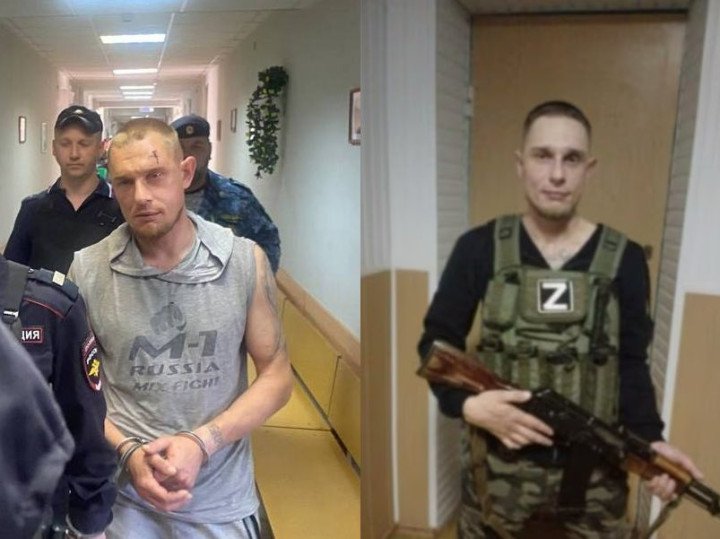
After that, reports of violence in the Russian information space began to appear more and more often. For example, a case of a former Wagner mercenary, recruited from prison in 2022, became widely publicized.
This former convict was accused of stabbing six people to death after returning to Russia from the war in Ukraine. Officials reported on August 2, 2023, that the bodies of five men and one woman, all with stab wounds, were found in two partially burned
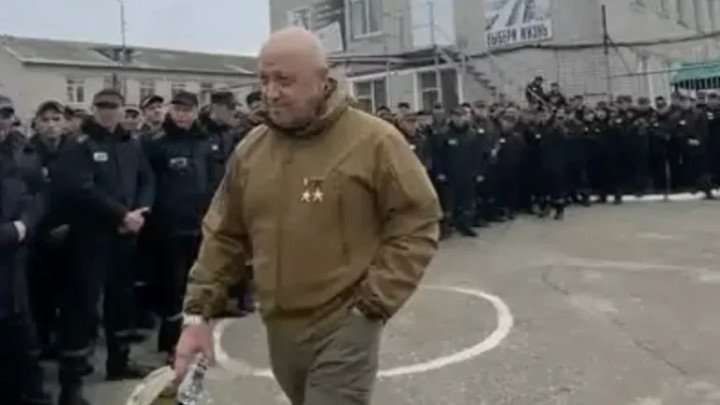
Project “K”
In August 2022, Yevgeny Prigozhin, the leader of the Wagner mercenary group and a man with a criminal record himself, was recorded giving a speech at a Russian men's penal colony. He was surrounded by dozens of convicts:
“The first sin is desertion. [No one retreats.] No one surrenders to captivity. When you study [you will understand] what the two grenades that you have on you are for. The second sin is alcohol and drugs. In the combat zone - while you are with us for six months, you are always in the combat zone. And the third sin is a marauder. Including sexual encounters with local women. Flora, fauna, men there, with anyone.”
Prigozhin offered prisoners at that colony, and across Russia, the opportunity to regain their freedom by signing a contract with the Wagner PMC group to fight in Ukraine. He spoke in their language, it resonated with the crowd, and the video gained instant notoriety.
It was part of a major recruiting effort by the Russian Ministry of Defense. Contracts,
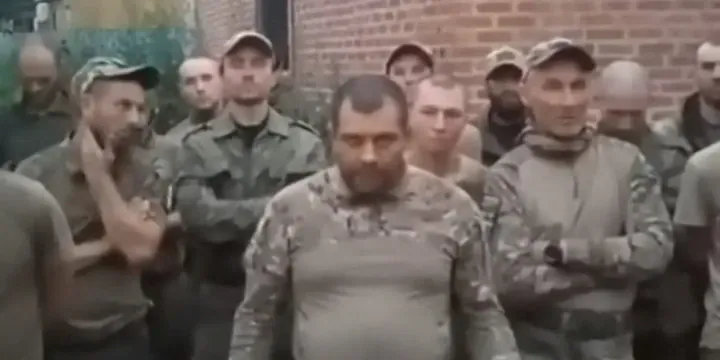
Additionally, recruits were promised training, equipment, and immediate deployment to the frontlines in Ukraine. The program targeted not only violent offenders but also those with various criminal backgrounds, aiming to rapidly increase manpower for high-risk operations—as Russians looked to overwhelm Ukrainians with sheer numbers.
Before dying in a plane crash in August of 2023, Yevgeny Prigozhin claimed to have recruited upwards of 50,000 inmates into the Wagner PMC. He acknowledged that many would be killed, and conditions on the frontline wouldn’t be easy. But convicts joined, and those who survived would return home, leading to a wave of violent crime and terror across Russia.
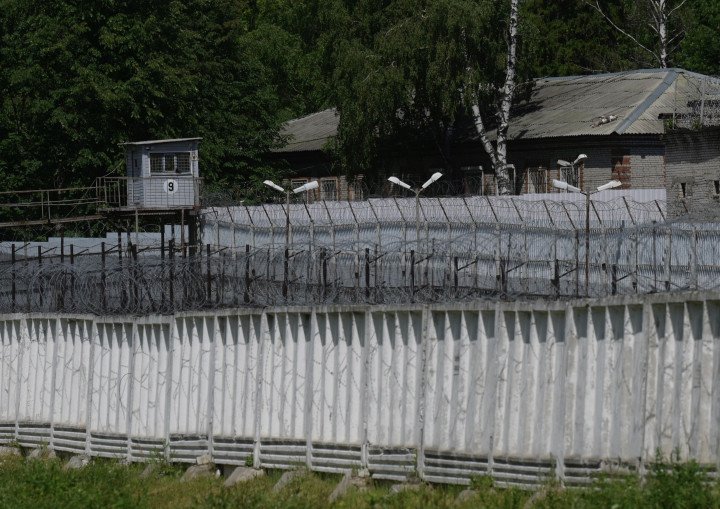
Penal Battalions
The picture of freedom and a new start was powerful, it attracted many, but the reality was often gruesome. Many prisoners found themselves on the front lines with minimal training and equipment. Those who survived faced not only the trauma of prison and war but also the conditions that led to crimes that they initially committed–all greatly exacerbated by a cycle of violence.
When the prisoners signed their contracts, they would typically be filtered with other criminals into penal battalions like the Storm-Z unit, which was composed largely of convicts recruited directly from Russian prisons. They would be sent to the hottest spots on the frontline with minimal support. Prisoners would be subject to this kind of environment for a minimum of six months before being released.
At the end of 2023, changes would be made to the Russian prisoner-to-soldier pipeline. Six-month contracts for commuted sentences would be replaced with a new conditional release system. Under it, Russian prisoners could serve the remainder of their sentences as soldiers.
Additionally, new units were established, such as the Storm V penal units, which were deployed in operational areas like Avdiivka and Chasiv Yar following the disbanding of the Storm Z units. Although the conditions and training remained largely unchanged from their predecessors, service in Storm V units appeared to be a life sentence for many of its members, with little chance of returning home.
Aside from NGOs, foreign intelligence, and OSINT groups, no other records are being kept of the violence committed by convicted criminals whose sentences were commuted after serving in Ukraine. In fact, it seems that the Russian government would prefer to keep that information obscure. And independent media outlets and human rights groups in Russia can only bring to light a fraction of the crimes committed. Many will be unaccounted for and unresolved.

-35249c104385ca158fb62273fbd31476.jpg)


-554f0711f15a880af68b2550a739eee4.jpg)



-206008aed5f329e86c52788e3e423f23.jpg)